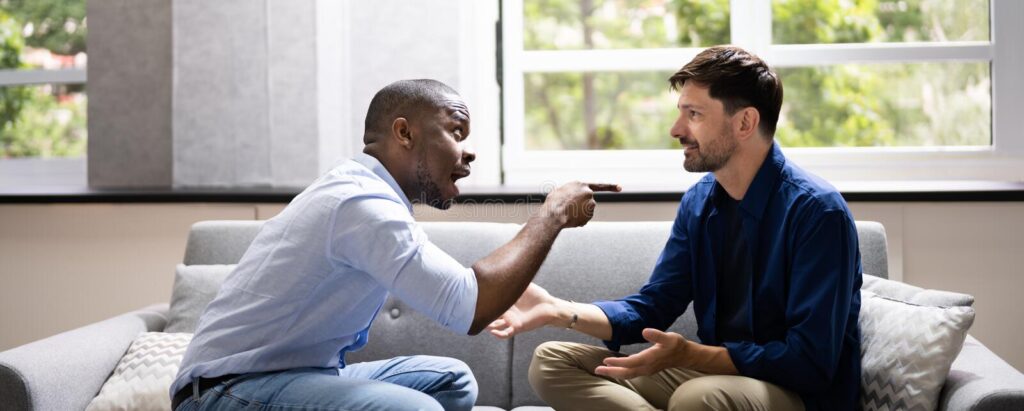5 Ways to Build Healthier Relationships with Others

Do you often find yourself struggling to communicate what you want and need with others? Is there often little reciprocity between you and a loved one? If this is the case, it could mean some difficulties may exist in your relationship.
While relationship troubles are common, it’s also important to recognize what your personal limits are. If you feel remotely uncomfortable, emotionally or physically, in any situation, know that the first priority is always your safety. This applies to all relationship types, from romantic to platonic.
Healthy relationships can mean many different things to different people, but factors such as trust and transparency likely underlie them.
To learn more about what this might look like, here are 8 ways of build healthier relationships with others.
1. Labeling Your Feelings

It can be harder to resolve discord in a relationship when you aren’t as open about how and why you feel a certain way. Using “I” statements in communication can be one of the most effective ways to start.
“I” statements are exactly like how they sound. You refer directly to yourself when talking about how a partner or friend’s actions affected you. For example, here is a contrast. “You don’t care about our relationship because you never text me back” vs. “When you don’t text back, I feel sad that you might not care.”
The first statement might make you seem more accusatory. This is because you’re “accusing” someone of something they might not have intended to do. However, the second statement appropriately describes how you feel and what someone did that made you feel that way. This type of communication does a better job of avoiding both misunderstanding and miscommunication. It clues your friend or partner into the root of your frustration and also opens the street for them to respond in a similar way.
This two-way communication can be one of the most important pillars of interpersonal relationships.
2. Focusing on Problem-Attacking vs. Person-Attacking

Despite all the love in a relationship, it can also be helpful to learn how to navigate arguments if/when they arise. One strategy that can help you with them includes problem-attacking language. While a person may be causing a problem, calling out the person themselves may make them feel hostile and close them off to resolution.
Describing a partner or friend’s behavior in terms of facts can allow for open and honest conversation. It allows you to work with them in both identifying clear obstacles and detangling them. However, Problem-Attacking creates an entirely opposite dynamic. It can muddy existing tensions, which are then trickier to work out.
If problem-attacking vs. person-attacking seem hard to discern, the following analogy may help. When gardeners are at work, do they pluck out only the weeds (problems), or the entire garden (person)? Routinely identifying weaknesses and addressing them can be helpful upkeep, but if it starts to become too much, remember it is okay to put yourself before another person.
3. Taking time for yourself

Any type of strong relationship is likely built on the fundamentals of a two-way street. While this is important, sometimes self-love can be the perfect recharge you need to recommit yourself. Yet, it may be hard to give yourself time, especially when you bear extreme love and care for someone. Part of any healthy relationship means not losing any part of yourself, or who you are, to any other person.
Self-love can be one of the most powerful reminders of your independence and your beauty. Caring for yourself may seem selfish in a relationship, but it is important to find a way that works for you. While many think of self-love or self-care as post-its on a mirror or a spa day, it could mean something entirely different to you. The key is learning what that might look like in your own life, and making it sustainable.
When you and your partner or friend take the time to appreciate yourself outside of the relationship, you are likely to be even more present for one another. However, if you find yourself frequently berated for taking this type of time, it could mean it’s time to take a step back — or out.
4. Maintaining who you are

Simply put, this means to be yourself. Depending on how you were raised, your attachment styles may lead you to conform to how your partner or friend wants you to be. They might critique one behavior or habit of yours, which might lead to overcorrection or “people pleasing”. This may cause you to lose what you truly find pleasure in, in order to make someone else happy.
Being yourself doesn’t just have to mean personality-wise, but it could even be the friends and family that you keep in touch with. In a relationship, it’s important that you aren’t punished or prevented from spending time with others you care about beyond your loved one. Losing yourself in a relationship might look like your social circles becoming so thin, that it is just you and them — everyone else has been cut out.
Taking a night to dine with your best friends or partying with your old college roommate isn’t an example of selfishness. Having these concurrent relationships can be part of just the healthy balance you need.
5. Recognize if it’s time to stop

While these were a few ways of building healthy relationships, at times, it can be incredibly important to recognize when one can be beyond repair. You may want to do everything in your power to make it work out, but not all problems can be easily solved. At the end of the day, a relationship also means distinct entities coming together and coexisting – if it isn’t mutually beneficial – this may warrant some thought.
You may try each of the above tips, but still find yourself grasping at straws — and that’s okay. Every relationship is different, there may be couples who can pull through big arguments, and those who wish to be completely non-confrontational — and of course, those right in between. What can be the most important is that you take the time to learn which combination of factors is best for you and understand when a relationship might have run its course.
It is tricky to point out a one-size-fits-all solution for knowing when to walk away. You may feel held back by extreme guilt, that you owe it to your partner or friend to at least try. Yet, if you ever feel as if you haven’t been yourself for a while, and someone is making that feeling even worse, it isn’t your fault for wanting to leave.
Final Thoughts
Relationships can be tedious, even more so when you hit bumps in the road. It can be emotionally draining to navigate through arguments and emerge unscathed. Moments such as this likely may make you wonder how you could create a more “healthy” situation. Setting boundaries and communicating your expectations may seem intimidating at first. If it is, thinking about it like taking a trip could be a simple first step.
For example, if you’re traveling abroad, you might want to make an itinerary. Planning out which places to see and the best places to eat. In a relationship, sitting down with your friend or partner and clearly outlining expectations at certain points in time can make things clearer for everyone involved.
At the same time, you should also know when it might be time to walk away. While a relationship is a commitment to another person, it shouldn’t be detracting from you in any way; and, there’s no one better than you to make that decision.
Relationship woes? Feel free to share with us in the comments, and don’t forget to check out our community on the Psych2Go YouTube Channel!
References:
- 10 Tips for healthy realtionships | Healthy relationships | Amherst College. (n.d.). Amherst College. https://www.amherst.edu/campuslife/health-safety-wellness/counseling/self_care/healthy_relationships/10_tips_for_health_realtionships
- Are You In a Healthy Relationship? (2022, February 21). Verywell Mind. https://www.verywellmind.com/all-about-healthy-relationship-4774802
- Raypole, C. (2019, December 13). What Makes a Relationship Healthy? Healthline. https://www.healthline.com/health/healthy-relationship




Responses